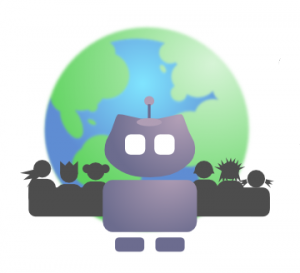 Yesterday I got news that I was accepted into a super cool internship program. For the first quarter of 2013, I’ll be working with the Open Technology Institute to help them integrate Tor with their mesh networking platform called Commotion.
Yesterday I got news that I was accepted into a super cool internship program. For the first quarter of 2013, I’ll be working with the Open Technology Institute to help them integrate Tor with their mesh networking platform called Commotion.
The internship is part of the GNOME Foundation‘s Outreach Program for Women. GNOME is an open source desktop environment, and my preferred desktop on Linux. In 2006 they ran an internship program whose goal was to get more women contributing to Free and Open Source Software (FOSS). People loved it and in 2010 they revived the effort and started running it twice a year.
For this iteration, they’ve partnered with a slew of FOSS projects to offer some pretty diverse opportunities in cloud computing, security, and tools for privacy and fighting censorship. The internships are set up as full-time work from home, making them accessible for women of many geographic areas and income levels.
The application process was a little unusual. When I first read through it, it sounded awfully onerous. But the more I thought about it and stepped through it, the more I was convinced that it was cleverly designed to have several positive “unintended” consequences that would result in women engaging with FOSS projects regardless of whether they were selected.
Applicants were asked to look through the available programs, dig into the ones that looked most interesting, get in touch with people working on the project, take on a small assignment (typically a bug fix), submit it for feedback and make any requested fixes, THEN fill out an application. So even before you apply, you can say you’re a contributor to a FOSS project. That’s pretty neat.
All of that had to happen in less than three weeks. Applications opened on Nov. 14 and were due on Dec. 3, making the application period feel more like a sprint than a waiting game. I’m one of those always-busy people so I assumed I wouldn’t be able to get to it, but the compressed schedule actually made me work more efficiently. I didn’t have time to get stressed out or expand the scope of my contribution, and in fact I had to focus on paring it down to something very doable. It was nice to have this out of the way well before the holidays, and I suspect the organizers felt similarly.
Where this application process really shines, though, is in the human contact that it requires. Each organization has a few ways for applicants to jump into the community, like IRC, mailing lists, and individual mentors. Additionally, there is an IRC channel and mailing list specifically for the program where applicants can ask questions or even coach and encourage each other. I was fortunate that Dan Staples, the coordinator for the project I had my eye on, was very responsive both by email and on IRC. I did see some people in IRC who were frustrated that their emails went unanswered or they had other communication issues that hurt their applications. But I think the idea was to put candidates and projects in touch with each other in ways that might persist beyond the application. Several surveys have indicated that people often feel like open source projects have a high barrier to entry. Simply being invited to jump in and say hello was really helpful to me. Now I feel like I have a way to connect with a range of awesome projects and make myself useful.
Why was this so much more effective for me than simply finding a contact email address on a project’s website? Well, for one, because it spoke to me, personally. In fact, the person who spoke to me, personally, was Marina Zhurakhinskaya, one of the organizers. I had some questions about whether the program was a good fit for my skills and goals, and she explained what the program was going for and how to make a strong application. That was super useful and friendly. Further, reading a page that says, we are looking for PEOPLE LIKE YOU to help us with this specific thing, and here’s the helpful person who can get you going, breaks through the awkwardness of emailing a project cold with little sense of what they need or if they are able to get people up to speed. For me it opened up a wormhole into an organization that I’d been sort of quietly checking out for a while. Three weeks later I’ve tripled the number of contacts I have at OTI and gotten a feel for their collective sense of humor. Without this invitation, I don’t know if I would have done that.
So, kudos go out to the people behind this program for their work, clever design, time spent getting new folks up to speed, and friendliness throughout a very tight timeline. Can’t wait to dig in and send some packets through the air!
Double congrats.